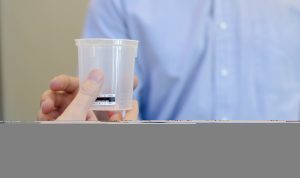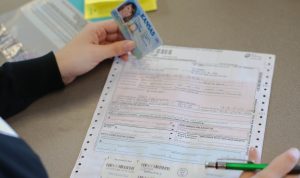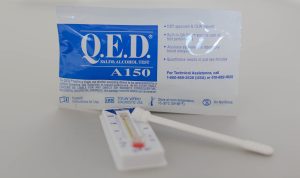Week #33
The holidays are almost here and the temperature in Kansas City has dropped below freezing. This typically means that the cold and flu season has begun, and as such, questions surrounding cold medicines and their impact on drug test results begin to arise. Many common prescription and over-the-counter (OTC) medications contain drugs such as hydrocodone, codeine and sympathomimetics, which have been reported to affect drug test results.
Codeine can be found in most prescription cough syrups. When codeine is metabolized in the body, it changes to morphine and therefore drug test results may come back positive for this drug. And similar to codeine, hydrocodone can be used as a cough suppressant and is widely used to treat pain. Donors who use prescription drugs containing hydrocodone may trigger a non-negative drug test result in some test panels.
Some OTC medications, including decongestants, contain drugs such as pseudoephedrine, ephedrine, and phenylephrine. Unlike codeine and hydrocodone, these sympathomimetics will not produce a non-negative drug screen. It is a common misconception that OTC cold medications will produce positive results in drug tests, but with our two-tiered screening and confirmation process, OTC drugs typically won’t result in a confirmed positive drug test.
Donors are welcome to list their medications on their copy of the custody and control form (CCF) after providing a specimen. If a non-negative result is produced and sent to the Medical Review Officer (MRO), this list of medications can be a useful reminder for the donor to use during the MRO follow up and verification of the result.
As I sit at my desk writing this post, I hear several different colleagues around the office coughing. I received my first flu shot this fall so hopefully I won’t contract anything. But if I do, I’ll make sure to keep track of the medications I take – just in case.
For more information about drug testing, visit our website.
As a new employee at Quest Diagnostics, there’s hardly a day that goes by that I don’t learn something new about the world of drug testing. Like some of you, I have a lot to learn about the industry. During my first year of employment, I’m going to write this weekly column highlighting drug testing procedures, products and processes as I discover them. To learn more about my journey, you can read my introductory post.
 Your Privacy Choices
|
Privacy Notices
|
Terms
|
Language Assistance / Non-Discrimination Notice | Asistencia de Idiomas / Aviso de no Discriminación | 語言協助 / 不䈚視通知
Your Privacy Choices
|
Privacy Notices
|
Terms
|
Language Assistance / Non-Discrimination Notice | Asistencia de Idiomas / Aviso de no Discriminación | 語言協助 / 不䈚視通知



















Week #33
The holidays are almost here and the temperature in Kansas City has dropped below freezing. This typically means that the cold and flu season has begun, and as such, questions surrounding cold medicines and their impact on drug test results begin to arise. Many common prescription and over-the-counter (OTC) medications contain drugs such as hydrocodone, codeine and sympathomimetics, which have been reported to affect drug test results.
Codeine can be found in most prescription cough syrups. When codeine is metabolized in the body, it changes to morphine and therefore drug test results may come back positive for this drug. And similar to codeine, hydrocodone can be used as a cough suppressant and is widely used to treat pain. Donors who use prescription drugs containing hydrocodone may trigger a non-negative drug test result in some test panels.
Some OTC medications, including decongestants, contain drugs such as pseudoephedrine, ephedrine, and phenylephrine. Unlike codeine and hydrocodone, these sympathomimetics will not produce a non-negative drug screen. It is a common misconception that OTC cold medications will produce positive results in drug tests, but with our two-tiered screening and confirmation process, OTC drugs typically won’t result in a confirmed positive drug test.
Donors are welcome to list their medications on their copy of the custody and control form (CCF) after providing a specimen. If a non-negative result is produced and sent to the Medical Review Officer (MRO), this list of medications can be a useful reminder for the donor to use during the MRO follow up and verification of the result.
As I sit at my desk writing this post, I hear several different colleagues around the office coughing. I received my first flu shot this fall so hopefully I won’t contract anything. But if I do, I’ll make sure to keep track of the medications I take – just in case.
For more information about drug testing, visit our website.
As a new employee at Quest Diagnostics, there’s hardly a day that goes by that I don’t learn something new about the world of drug testing. Like some of you, I have a lot to learn about the industry. During my first year of employment, I’m going to write this weekly column highlighting drug testing procedures, products and processes as I discover them. To learn more about my journey, you can read my introductory post.